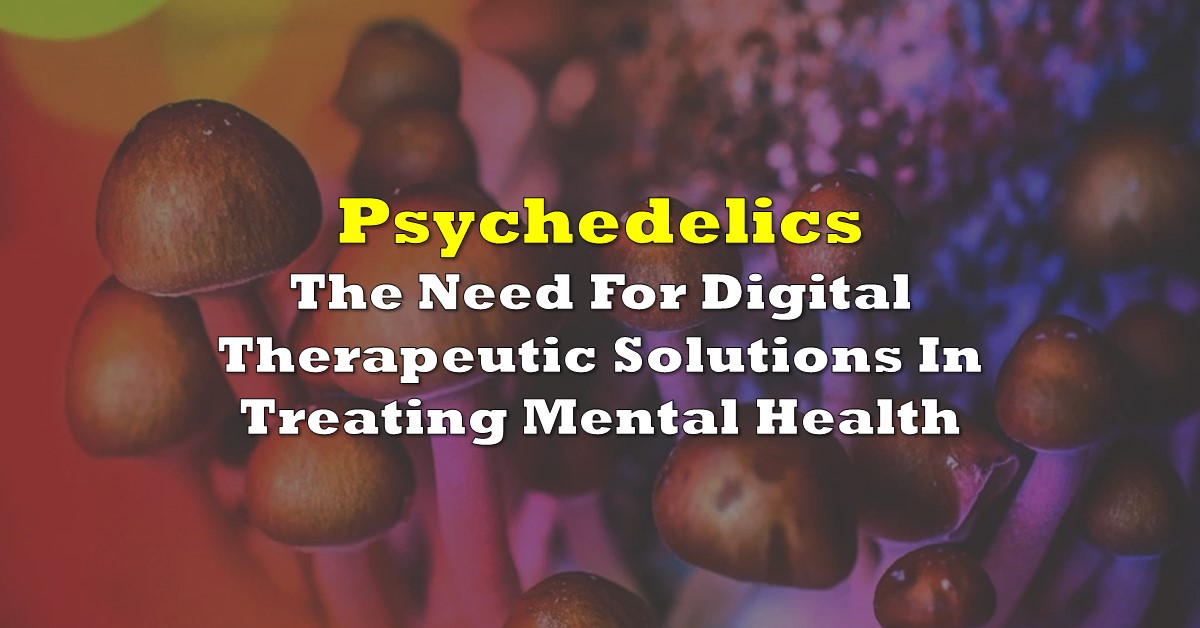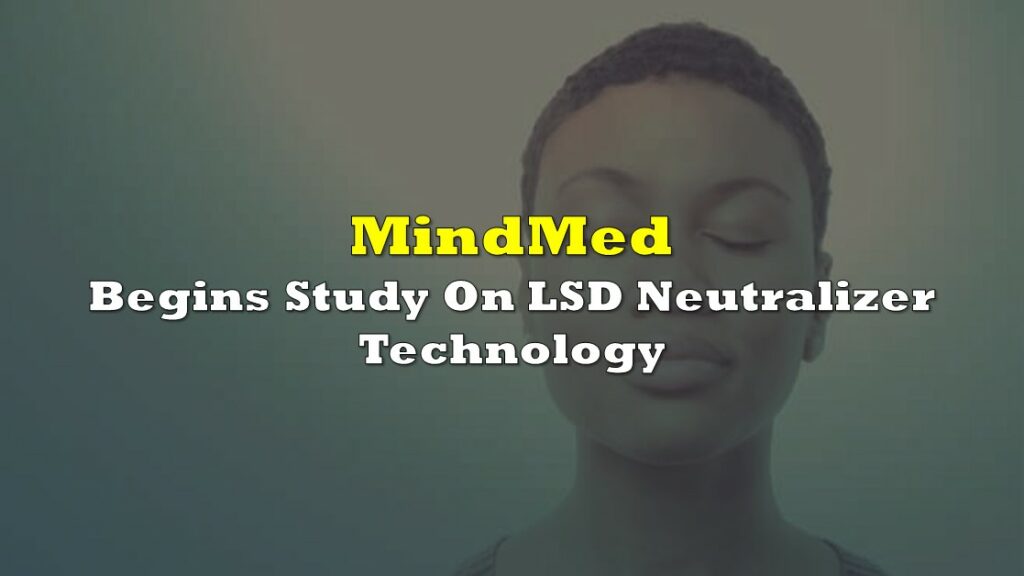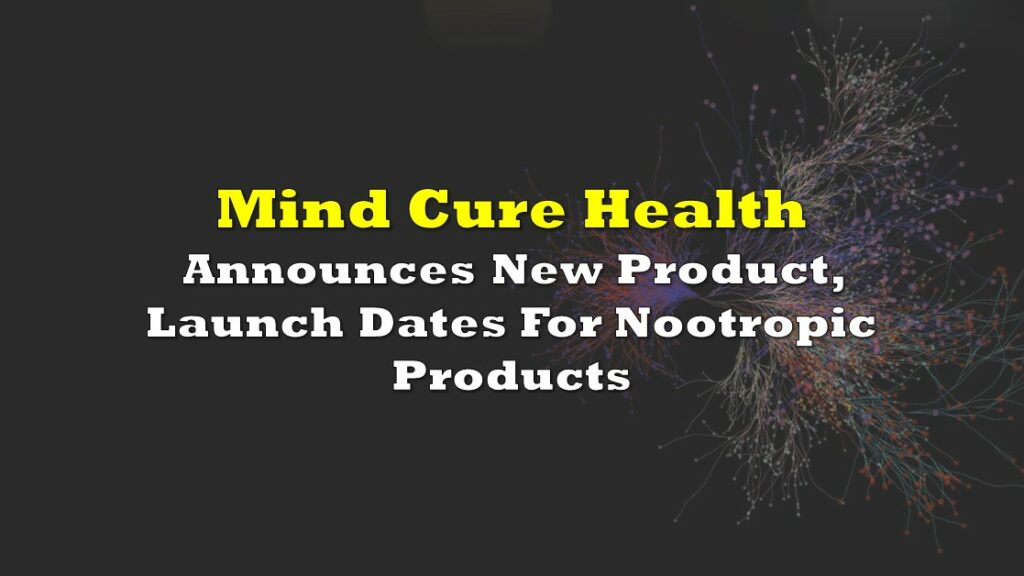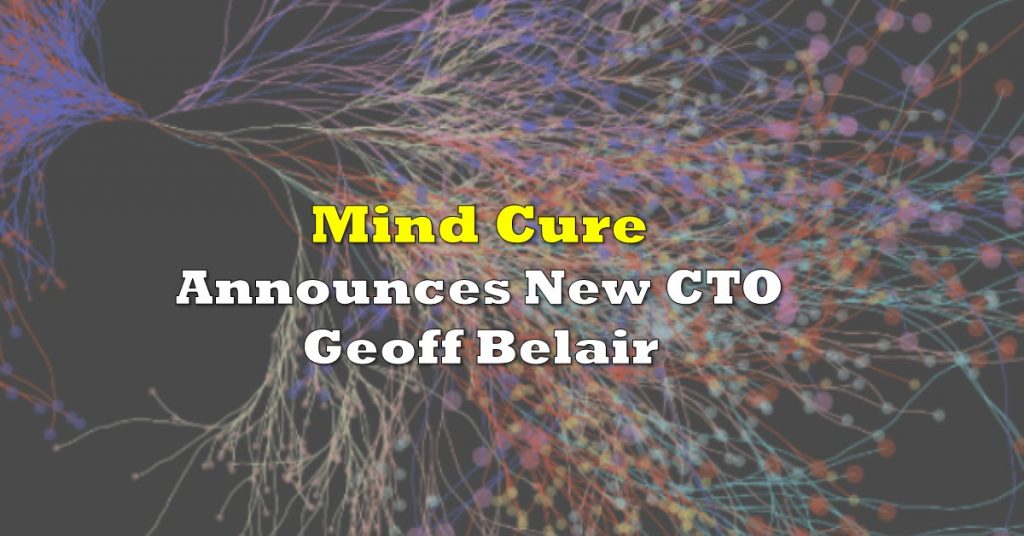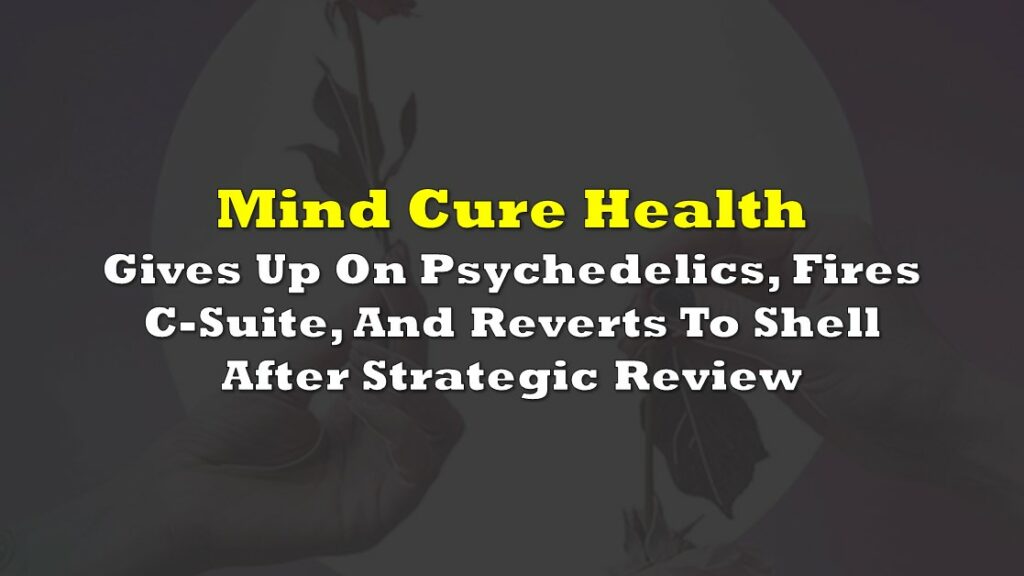In terms of investment dollar inflows, one of the largest focuses of 2020 has arguably been that of the growing need to address mental health. Thinly disguised as a focus on psychedelics to generate more excitement from investors looking to jump on the “next big thing,” the bigger picture here truly appears to be a growing focus on the importance of mental health, and the need to sufficiently address the niche medical space.
Take for instance, the IPO earlier this year of Mind Medicine (NEO: MMED). The much discussed and arguably the leader of the Canadian psychedelics space is truly focused on mental health at its core. Current studies being conducted by the firm are focused on the treatment of ADHD, anxiety, addiction and cluster headaches, among others. To date, the company has raised over $41.9 million as it looks to solve mental health issues through the use of previously sidelined compounds like LSD and psilocybin.
We can also look at the more recent IPO of Field Trip Health (CSE: FTRP), another leader in the space whom often directly states that they are focused on the topic of mental health. The company, whom went public with a $12.6 million financing just last month, is focused on developing its own compound for use in treatment of diseases including depression and PTSD.

And then who can forget Compass Pathways (NASDAQ: CMPS), whom raised US$146.6 million in its IPO round, just months after completing an US$80 million Series B financing round. Compass is focused on utilizing psilocybin therapy in the treatment of severe depression that has been previously resistant to treatment. The difference with Compass however, is that the company recognizes the need to focus on digital technologies in conjunction with providing this therapy to better understand the intricacies of mental health.
In layman terms, mental health itself is complicated. It’s not something “simple” to treat like a broken bone, where a few visits with a physician over a period of eight to twelve weeks will typically resolve the issue at bay. The healing process of a broken bone is not momentary in time at the time of the doctors visit. The healing is visible, with progress easily tracked over this window of time, with progress unlikely to be reverted in typical situations.
Mental health is not like this. After the issuance of a prescription to treat a mental health disorder, say depression, subsequent doctors visits and the results exhibited at these visits can be passive in nature. If the patient is having a good day, it will appear that the medication is working as intended. If the patient is having a bad day, the medication can appear to be failing. Either instance is based on that particular half hour long moment in time when the patient is in front of the doctor, which may not properly represent the true results at all.
To resolve this issue as it pertains to mental health, digital technologies are being called upon. This is where Mind Cure Health (CSE: MCUR) and their latest development, the announced letter of intent to acquire Ephiphany360, comes into play. Ephiphany is defined as being a proprietary, cloud-based digital therapeutics platform design to treat mental health.
The platform works by tracking the qualitative aspects (i.e. unstructured data – text heavy descriptions of a patients feelings, emotions, etc) of mental health that can be often be missed along the way. The technology has been designed to check in with patients between doctors visits, enabling more qualitative data to be collected on the patient to better understand their condition. Furthermore, data collected between physicians, counsellors and patients is aggregated into one platform, enabling a clearer picture of the situation to be provided to healthcare providers.
The frequent check-ins are designed to catch adverse side effects early before they become adverse events, while also enhancing engagement between patients and their mental health. Patients are then able to better monitor their mental health on an ongoing basis, thereby eliminating the current shortcomings of traditional medicine as they pertain to determining the success of certain treatments.

But there’s more to Ephiphany360 than that. The digital platform has aggregated over 100,000 patient encounters through 25 years of clinical experience and data. This data collection, when fused with artificial intelligence, has allowed the company to begin to analyze the qualitative data for treatments and effective outcomes. The program has been refined to correlate seemingly unrelated data efficiently, which can be utilized to continually improve the quality of care of the patient in ways previously thought unattainable.
Overall, the need for digital therapeutics is not lost on those involved in the psychedelics space either. Atai Life Sciences, an early backer of Compass Pathways and a firm heavily focused on depression, anxiety, and addiction, is also an early backer of Introspect, a firm currently in the process of developing personalized digital tools to assist in psychedelics-related physiotherapy. Then there’s also Mindstrong, whom earlier this year raised US$100 million in a Series C financing as they continue to develop a digital therapeutics platform for use against mental health.
Digital therapeutics, as it pertains to psychedelics, is precisely what the sector needs. Given the fact that many are apprehensive towards the use of any form of psychedelic, whether it be psilocybin, MDMA, LSD, or otherwise, a platform that can track the incremental changes in a persons mental health as a result of their use is what will enable legitimacy within the sector.
Currently, there is said to be a fear among physicians in relation to the use of psychedelics in that if severe neurological conditions are already present, their use may be detrimental to the patient. A high degree of data collection is exactly what is needed to reassure potential patients and their physicians, as well as regulatory bodies, that these new forms of treatment are acceptable and proven methods of assisting in the treatment of mental health, while also providing ongoing patient data for continued analysis.
The data required for the several ongoing psychedelics-related clinical trials only goes further to confirm this viewpoint. The data collected via digital therapeutics enables the decisions by regulatory bodies to be even further evidence-based than is the norm. Thus, digital platforms like what is offered by Mind Cure’s Ephiphany360 is precisely what the psychedelics sector as a whole requires to further build legitimacy in the eyes of skeptics as well as the medical community.
And the sooner that data can be collected, the sooner the psychedelics community as a whole can benefit.
FULL DISCLOSURE: Mind Cure Health is a client of Canacom Group, the parent company of The Deep Dive. The author has been compensated to cover Mind Cure Health on The Deep Dive, with The Deep Dive having full editorial control. Not a recommendation to buy or sell. Always do additional research and consult a professional before purchasing a security.

